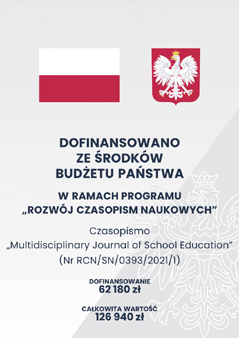The Role of the ‘Post Graduate Diploma in Secondary School Teaching’ Program in Improving the Quality of Teaching in Eastern Ethiopian Secondary Schools
Abstract
This study dealt with the role of the Postgraduate Diploma in
Secondary School Teaching (PGDT) program in improving the quality of
teaching in Eastern Ethiopian secondary schools. The study used a mixed research design that integrated both qualitative and quantitative research
methods concurrently. The data was collected from 140 respondents, comprised of 83 teachers and 57 school leaders (i.e., mentors, principals, and head
teachers) of 14 secondary schools found in four zones of Eastern Ethiopia.
The researchers used simple random sampling to select secondary schools,
whereas teachers and school leaders were selected using purposive and expert sampling techniques respectively. Quantitative data was collected via
a questionnaire and qualitative data through focus group discussion (FGD),
interview, and observation. The data is analyzed both in a qualitative and
a quantitative manner. The findings of the study showed that PGDT graduates
seem to be contributing their part to enhancing quality education by raising high order thinking questions, implementing classroom activities such
as: problem-solving, cooperative leaning, discussion and brainstorming,
^L1/2016 (9)
Multidisciplinary Journal of School Education
Sisay Awgichew Wondemetegegn
Anwar Ahmed
Tamrat Zelalem
166
frequently managing the classroom for active learning implementation, using
exercises to elicit students’ ideas, knowledge and skills and encouraging students to become active participants in classrooms. This is considered to be an
encouraging trend for the desired improvement in teaching quality. The result of this study also demonstrated that PGDT graduates have good subject
matter knowledge and apply it effectively in their classrooms. The grand mean
of teachers’ and school leaders’ responses related with their subject matter
knowledge is 4.33 and 3.81, respectively. This seemed to exist because of their
undergraduate program; they have had an opportunity to attain various major
courses in the three-year bachelor program. After that, in order to become
a high school teacher, they had to attend a one-year or a two-summer long
PGDT program to equip them with fundamental pedagogical skills. This is understood as the benefit of the new teacher-education program. Despite all of
these facts and in contrast with the teachers’ response, the researchers observed that in most Eastern Ethiopia secondary schools teaching was dominated by traditional methods of teaching or lecturing. This approach makes
students passive, less confident, unreflective and poorly motivated to enjoy
learning. Furthermore, concerning students learning assessment, an inconsistency of application was observed. Therefore, the researchers suggested that
the Ethiopian Ministry of Education, in collaboration with higher learning institutions and teacher-training colleges, would have to provide continuous
training for secondary school teachers about student assessment, active and
constructivist methods of teaching to enhance quality education and produce
robust graduates fit for the 21st century world of work and consciousness.
Keywords: quality, teaching, PGDT
Copyright (c) 2016 Sisay Wondemetegegn, Anwar Ahmed, Tamrat Zelalem

This work is licensed under a Creative Commons Attribution-NoDerivatives 4.0 International License.
- The Author/Authors agree(s) to publish the article free of charge in Multidisciplinary Journal of School Education in English or Spanish. The Editorial Board reserves the right to shorten the texts and change the titles.
- As part of free publication mentioned in § 1, the Author/Authors agrees to make the full electronic version of their article available in the Internet.
- The Author/Authors agrees to index their article in databases at home and abroad, including abstracts and keywords as well as Author's/Authors’ affiliation in English and in other languages. The Author/Authors agrees to pass on the information mentioned above to the owners of these databases.
- The Author/Authors declares that their publication is original and does not include borrowings from other works which might cause Publisher's responsibility, does not infringe the rights of the third party and that their copyright on this publication is not limited. The Author/Authors will incur all the costs and will pay compensations which might result from the mendacity of the following statement.
- The Author/Authors declares to bear complete responsibility for the scientific reliability of the article submitted. The detailed contribution of all co-authors is defined.
- The Author/Authors declares to publish the text in the Multidisciplinary Journal of School Education under a Creative Commons Attribution-NoDerivatives 4.0 International License (CC BY-ND 4.0).
- For more than one author, please complete the Authorship Contributions and send it to the editorial office. Please indicate the specific contributions made by each author (list the authors’ initials, e.g., JKH). Please download, complete, scan and attach the file in the system during the submission process.
Authors Statement - Authorship Contributions






